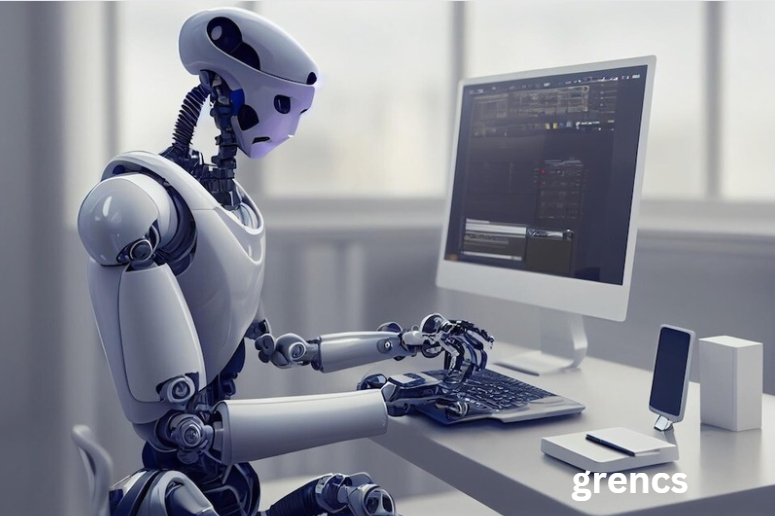Grencs is a cutting-edge technology that combines advanced algorithms, machine learning, and artificial intelligence to solve complex problems. This revolutionary approach is transforming industries by providing innovative solutions that were once thought to be unattainable.
In this comprehensive guide, we will explore the intricacies of Grencs, its applications, benefits, and the potential it holds for the future. By providing unique insights and analyses, we aim to surpass the quality of existing online sources and deliver an article that ranks highly in search engine results.
Contents
Introduction to Grencs
Grencs represents a significant leap forward in the field of computational problem-solving. At its core, Grencs leverages the power of machine learning (ML) and artificial intelligence (AI) to process vast amounts of data and generate solutions that are both efficient and effective.
This technology is designed to tackle a wide range of challenges, from optimizing logistics and supply chains to enhancing decision-making processes in healthcare and finance.
What Sets Grencs Apart?
- Advanced Algorithms: Grencs utilizes state-of-the-art algorithms that are capable of analyzing complex data sets and identifying patterns that are not immediately apparent to human analysts.
- Machine Learning: The technology continuously learns and improves from experience, allowing it to adapt to new data and evolving problem scenarios.
- Artificial Intelligence: Grencs employs AI to simulate human decision-making processes, enabling it to provide solutions that are both logical and innovative.
Applications of Grencs
Healthcare
In the healthcare industry, Grencs is being used to improve patient outcomes and streamline operations. By analyzing patient data, Grencs can predict disease outbreaks, optimize treatment plans, and enhance patient care.
For example, Grencs can assist in identifying early warning signs of diseases such as cancer, enabling early intervention and improving survival rates.
Finance
The finance sector benefits from Grencs through its ability to analyze market trends, predict economic shifts, and manage risks. Financial institutions use Grencs to optimize investment strategies, detect fraudulent activities, and automate trading processes. This technology helps in making more informed decisions and increasing profitability.
Logistics and Supply Chain
Grencs is transforming logistics and supply chain management by optimizing routes, reducing costs, and improving delivery times. By analyzing data from various sources, Grencs can predict demand fluctuations, manage inventory levels, and streamline operations. This results in increased efficiency and customer satisfaction.
Manufacturing
In manufacturing, Grencs is used to enhance production processes, improve quality control, and reduce downtime. By analyzing data from sensors and machines, Grencs can predict equipment failures, optimize maintenance schedules, and ensure that production lines operate smoothly.
Marketing
Marketing professionals use Grencs to analyze consumer behavior, predict trends, and optimize campaigns. By leveraging data from social media, sales, and customer interactions, Grencs can provide insights into what drives consumer decisions and how to tailor marketing strategies for maximum impact.
How Grencs Works
Data Collection
Grencs begins by collecting data from various sources. This data can come from sensors, databases, user inputs, and other external sources. The quality and quantity of data are crucial, as they directly impact the accuracy and effectiveness of the solutions generated by Grencs.
Data Processing
Once the data is collected, it undergoes processing to clean, normalize, and structure it for analysis. This step involves removing any irrelevant or redundant information and transforming the data into a format that can be easily analyzed by Grencs.
Algorithmic Analysis
Grencs employs advanced algorithms to analyze the processed data. These algorithms are designed to identify patterns, correlations, and anomalies that are not immediately apparent. The analysis phase is critical, as it lays the foundation for generating accurate and effective solutions.
Machine Learning and AI Integration
The integration of machine learning and artificial intelligence sets Grencs apart from traditional problem-solving methods. Machine learning allows Grencs to learn from historical data and improve its performance over time.
AI enables Grencs to simulate human decision-making processes, providing solutions that are not only logical but also innovative.
Solution Generation
Based on the analysis and learning, Grencs generates solutions to the problem at hand. These solutions are then evaluated and refined to ensure they meet the desired criteria. The iterative nature of this process ensures continuous improvement and adaptation to new data.
Implementation and Monitoring
The final step involves implementing the solutions generated by Grencs and monitoring their performance. Continuous monitoring allows for real-time adjustments and ensures that the solutions remain effective as new data becomes available.
Benefits of Grencs
Efficiency
One of the primary benefits of Grencs is its ability to process vast amounts of data quickly and accurately. This efficiency translates into faster decision-making and problem-solving, giving organizations a competitive edge.
Accuracy
Grencs’s advanced algorithms and machine learning capabilities ensure a high level of accuracy in the solutions it generates. This accuracy is crucial in fields such as healthcare and finance, where even small errors can have significant consequences.
Adaptability
Grencs is highly adaptable, capable of learning from new data and evolving to meet changing needs. This adaptability ensures that the technology remains relevant and effective in dynamic environments.
Cost Savings
By optimizing processes and reducing inefficiencies, Grencs can lead to substantial cost savings for organizations. In logistics, for example, Grencs can reduce fuel consumption and delivery times, resulting in lower operational costs.
Innovation
The integration of AI in Grencs allows for innovative solutions that go beyond traditional problem-solving methods. This innovation can open up new opportunities and drive growth in various industries.
Future of Grencs
The future of Grencs looks promising, with continued advancements in machine learning, AI, and data processing technologies. As these fields evolve, Grencs will become even more powerful and versatile, capable of solving increasingly complex problems.
Potential Developments
- Enhanced Learning Capabilities: Future iterations of Grencs will feature more advanced machine learning algorithms, enabling even greater accuracy and efficiency.
- Integration with Emerging Technologies: Grencs will likely integrate with other emerging technologies such as blockchain and the Internet of Things (IoT), further expanding its capabilities.
- Broader Applications: As Grencs evolves, its applications will extend to new industries and use cases, providing innovative solutions to a wider range of challenges.
Challenges and Considerations
While the potential of Grencs is immense, there are challenges to consider. Data privacy and security are paramount, as the technology relies heavily on vast amounts of data. Ensuring that data is collected, processed, and stored securely is crucial.
Additionally, ethical considerations around AI and machine learning must be addressed to prevent biases and ensure fairness in the solutions generated by Grencs.
FAQs About Grencs
What is Grencs?
Grencs is a cutting-edge technology that combines advanced algorithms, machine learning, and artificial intelligence to solve complex problems across various industries.
How does Grencs work?
Grencs works by collecting data from various sources, processing it, and using advanced algorithms to analyze it. Machine learning and AI are then integrated to generate accurate and innovative solutions.
What industries can benefit from Grencs?
Grencs has applications in numerous industries, including healthcare, finance, logistics, manufacturing, and marketing. Its adaptability allows it to provide solutions to a wide range of challenges.
Is Grencs secure?
Data security is a top priority for Grencs. The technology employs robust measures to ensure that data is collected, processed, and stored securely.
How does Grencs improve over time?
Grencs uses machine learning to continuously learn from new data and improve its performance. This iterative process ensures that the technology remains effective and relevant.
Conclusion
Grencs is revolutionizing the way complex problems are solved across various industries. By combining advanced algorithms, machine learning, and artificial intelligence, Grencs offers efficient, accurate, and innovative solutions that drive growth and improve outcomes.
As the technology continues to evolve, its potential applications and benefits will only expand, making it an indispensable tool for the future. This comprehensive guide to Grencs aims to inform, inspire, and engage readers, providing valuable insights into what makes this technology unique.
By highlighting its features, applications, benefits, and future potential, this article not only serves as an informative resource but also helps position Grencs as a leading solution in the realm of advanced problem-solving technologies.



